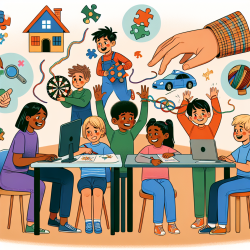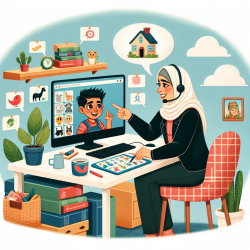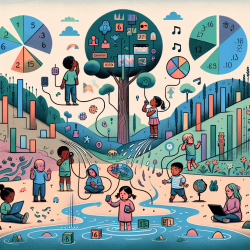Introduction
As a practitioner in the field of child development, you are likely aware of the challenges that come with addressing socio-emotional skills in children with neurodevelopmental disorders. A recent study titled Deep phenotyping of socio-emotional skills in children with typical development, neurodevelopmental disorders, and mental health conditions: Evidence from the PEERS sheds light on the distinct socio-cognitive profiles of children with Autism Spectrum Disorder (ASD), Attention Deficit Hyperactivity Disorder (ADHD), and Anxiety (ANX). This research offers valuable insights that can enhance your practice and improve outcomes for the children you work with.
Understanding Socio-Emotional Skills
Socio-emotional skills encompass social competence and social cognition. Social competence involves the behaviors necessary for developing meaningful relationships, while social cognition refers to understanding and processing interpersonal cues. These skills are crucial for a child's overall well-being and ability to navigate social environments.
Research Findings: Disorder-Specific Profiles
The study utilized the Paediatric Evaluation of Emotions, Relationships, and Socialisation (PEERS) tool to assess children with typical development and those with ASD, ADHD, and ANX. The findings revealed that:
- Children with ASD exhibited global socio-cognitive impairments, struggling with emotion recognition and processing.
- Children with ADHD showed impulsivity and difficulties managing speed-accuracy trade-offs in social situations.
- Children with ANX experienced slowed social decision-making but maintained intact social skills otherwise.
Implications for Practice
These findings highlight the importance of using disorder-specific assessments like PEERS to tailor interventions. By understanding the unique socio-cognitive profiles of each disorder, practitioners can design targeted strategies that address the specific needs of children with ASD, ADHD, and ANX.
Actionable Steps for Practitioners
To implement the outcomes of this research in your practice, consider the following steps:
- Utilize Objective Assessments: Incorporate tools like PEERS to gain a comprehensive understanding of a child's socio-cognitive abilities.
- Develop Targeted Interventions: Design interventions that address the specific socio-cognitive challenges identified in the assessment.
- Engage with Parents: Collaborate with parents to ensure they understand their child's unique socio-emotional profile and how they can support development at home.
- Stay Informed: Continue to engage with current research and resources to refine your practice and improve outcomes for children.
Encouraging Further Research
While this study provides valuable insights, further research is needed to explore the socio-cognitive mechanisms underlying these disorders. Practitioners are encouraged to contribute to this growing body of knowledge by conducting their own research or collaborating with academic institutions.
To read the original research paper, please follow this link: Deep phenotyping of socio-emotional skills in children with typical development, neurodevelopmental disorders, and mental health conditions: Evidence from the PEERS.










